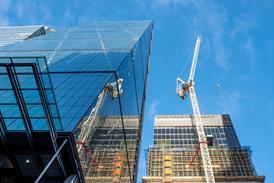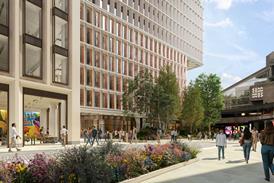- Home
 Construction output stayed in red for whole of last year, latest bellwether index confirms
Construction output stayed in red for whole of last year, latest bellwether index confirms KSS submits updated plans to increase City Ground capacity to over 50,000
KSS submits updated plans to increase City Ground capacity to over 50,000 High profile architects tear into SOM’s Barbican office scheme as objections top 1,000
High profile architects tear into SOM’s Barbican office scheme as objections top 1,000 Chris Williamson feeling ‘quite sad’ as RIBA president loses architect title
Chris Williamson feeling ‘quite sad’ as RIBA president loses architect title
- Intelligence for Architects
- Subscribe
- Jobs
- Events

2025 events calendar Explore now 
Keep up to date
Find out more
- Programmes
- CPD
- More from navigation items
Profession reacts to shock election result

Architects hope EU colleagues’ futures will be secured
This content is available to registered users | Already registered?Login here
You are not currently logged in.
To continue reading this story, sign up for free guest access
Existing Subscriber? LOGIN
REGISTER for free access on selected stories and sign up for email alerts. You get:
- Up to the minute architecture news from around the UK
- Breaking, daily and weekly e-newsletters
Subscribe to Building Design and you will benefit from:

- Unlimited news
- Reviews of the latest buildings from all corners of the world
- Technical studies
- Full access to all our online archives
- PLUS you will receive a digital copy of WA100 worth over £45
Subscribe now for unlimited access.


